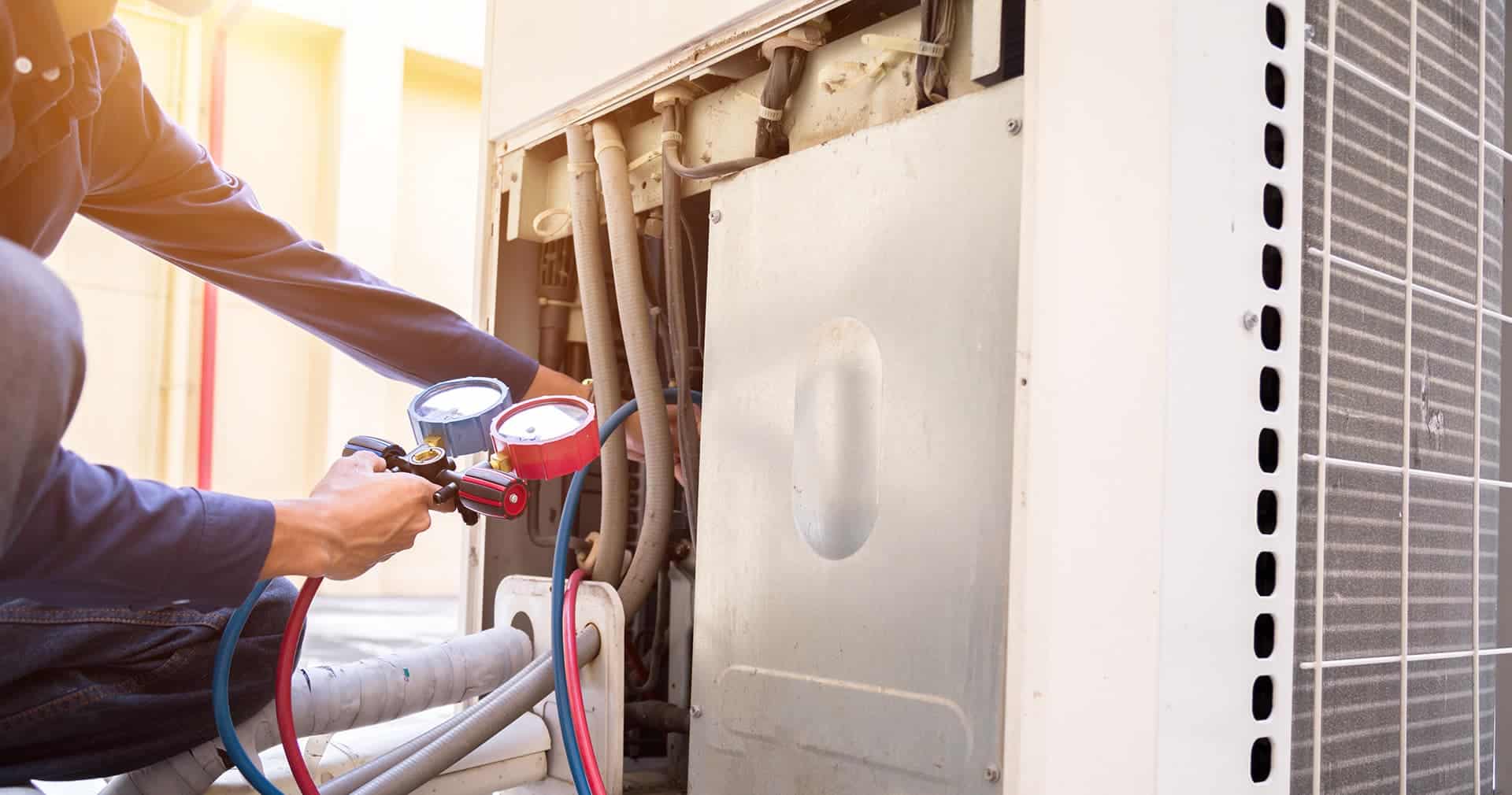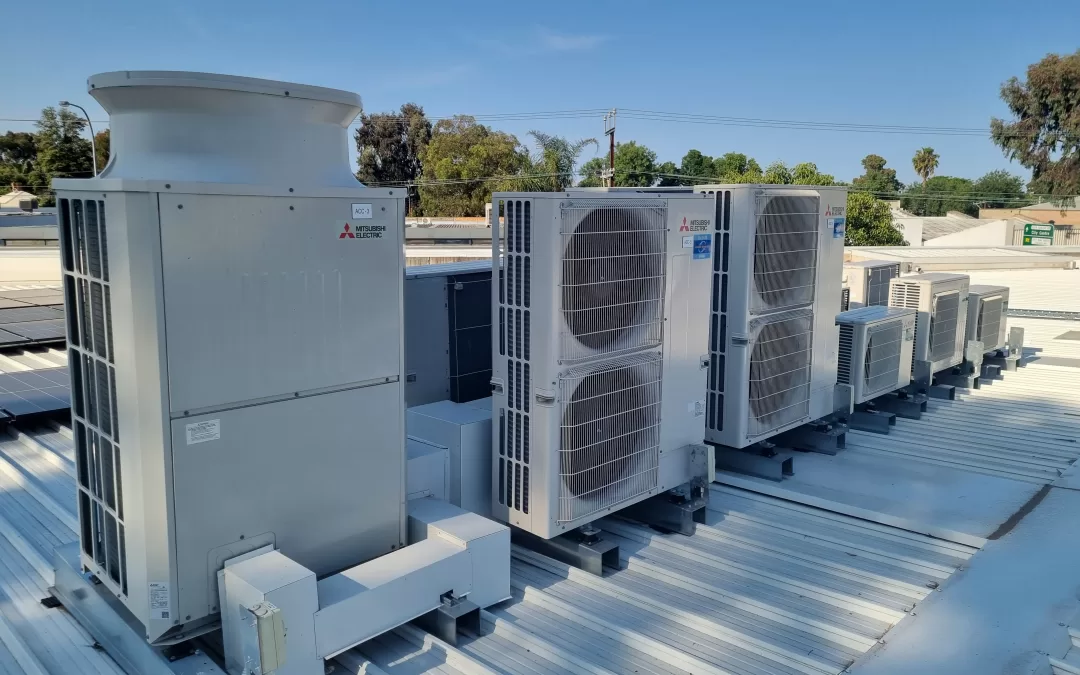Discover how HVAC experts deliver replacement services with precision
Wiki Article
Comprehending the Various Kinds Of Cooling And Heating System for Ideal Performance
Understanding the different kinds of HVAC systems is necessary for homeowners aiming to enhance comfort and energy performance. Central air conditioning systems provide consistent temperature control, while ductless mini-split systems provide versatility. Heatpump supply efficient year-round climate monitoring. For smaller sized areas, window and mobile a/c unit function as useful remedies. Geothermal systems use regular below ground temperatures for sustainable home heating and cooling. Each choice holds distinct advantages, motivating a better exam of which might fit specific demands best.Air Conditioning Systems
Although many property owners look for means to boost indoor comfort, recognizing main air conditioning systems is important for reliable environment control. Central air conditioning runs by circulating great air via a system of air ducts, dispersing it uniformly throughout the home. This sort of system includes several crucial elements, including an exterior compressor, an interior evaporator coil, and a network of ductwork.The compressor cools refrigerant, which after that soaks up heat from indoor air as it passes through the evaporator coil. This cooled down air is pushed through the air ducts and right into living areas, guaranteeing a regular temperature. Central air systems are understood for their effectiveness, commonly using programmable thermostats to optimize energy usage. Routine upkeep, such as filter adjustments and system checks, is important to guarantee long life and efficiency. Understanding these components helps property owners make educated decisions relating to installation and upkeep, eventually enhancing comfort and power efficiency in their homes.
Ductless Mini-Split Solutions
Ductless mini-split systems provide a flexible choice to traditional central air conditioning, accommodating property owners looking for effective climate control without the need for considerable ductwork. These systems contain an outdoor compressor system and one or even more indoor air-handling devices, enabling targeted air conditioning and home heating in particular areas or rooms. This zoning capacity improves comfort by allowing users to adjust temperatures based on private preferences, inevitably bring about power savings.Installation is normally easier and much less intrusive compared to ducted systems, which can be valuable for older homes or spaces with minimal architectural alterations. Furthermore, ductless mini-split systems frequently feature energy-efficient modern technologies, such as inverter-driven compressors, which optimize energy usage based upon need. Their portable style likewise permits different placement options, making them ideal for non-traditional or tight areas. Because of this, ductless mini-split systems have actually obtained popularity among house owners seeking modern-day, effective heating and cooling options.
Warm Pumps
Warm pumps stand for a flexible and energy-efficient choice for both heating and cooling down property rooms. These systems operate by moving warmth as opposed to generating it, making them especially reliable in moderate climates. Throughout warmer months, warmth pumps extract heat from inside your home and launch it outside, supplying air conditioning. Conversely, in winter, they reverse this process, attracting heat from the outdoors air or ground to heat the inside.There are 2 main kinds of heatpump: air-source and ground-source (or geothermal) Air-source heatpump are extra usual due to their simpler installation and reduced initial expense, while ground-source models boast greater efficiency and security in performance. In addition, heatpump can especially lower energy expenses and carbon footprints when compared to traditional home heating techniques, making them an eco-friendly option. like this In general, heatpump stand as an engaging remedy for home owners looking for efficient environment control throughout the year.
Window and Portable Air Conditioners

On the various other hand, mobile air conditioners use adaptability, as they can be conveniently moved from area to space. These devices usually call for an airing vent kit to exhaust warm air with a window, yet they supply a convenient alternative for short-lived cooling demands.
Both types of a/c unit are ideal for renters and those seeking to avoid considerable installation processes. Users should consider aspects such as BTU capability, power effectiveness ratings, and sound degrees when picking a device to guarantee peak performance for their certain room and cooling requirements.
Geothermal Heating & Cooling Solutions
As power performance becomes increasingly vital, geothermal home heating and air conditioning systems have acquired appeal for their lasting strategy to environment control. click here to find out more These systems utilize the steady temperatures located underground to provide home heating in wintertime and cooling in summer season. By taking advantage of the earth's all-natural thermal energy, geothermal systems significantly minimize reliance on fossil gas and lower energy costs.
Moreover, geothermal systems usually call for less maintenance contrasted to standard a/c systems, resulting in lasting savings - HVAC experts. With boosting recognition of environment change, these systems stand check my blog for a forward-thinking service for those looking for environment-friendly and efficient heating and cooling down alternatives
Frequently Asked Concerns
Just how Usually Should I Solution My Heating And Cooling System?
Heating and cooling systems must preferably be serviced twice a year, when in the spring and once in the autumn. Routine maintenance aids assure efficiency, prolongs life expectancy, and protects against costly breakdowns during optimal usage periods.What Size Heating And Cooling System Do I Required for My Home?
Identifying the appropriate size for a HVAC system requires calculating the home's square footage, insulation top quality, and environment. An expert assessment warranties maximum efficiency, convenience, and power cost savings tailored to the certain needs of the residence.Can I Set Up a Cooling And Heating System Myself?
Setting up a heating and cooling system independently is possible, but it calls for technical knowledge and skills. Mistakes can cause inefficiency or security threats, so consulting a professional is commonly advised to ensure appropriate installment and compliance with regulations.What Are the Indications My Cooling And Heating System Needs Repair?
Signs that a HVAC system requires repair service consist of uncommon sounds, inconsistent temperatures, enhanced power costs, unpleasant odors, and constant cycling. Motivate interest to these signs can avoid more damages and warranty peak system performance.Exactly How Can I Enhance My cooling and heating System's Energy Efficiency?
To boost HVAC energy effectiveness, one must routinely replace filters, seal air ducts, mount a programmable thermostat, assurance proper insulation, and schedule routine maintenance checks. HVAC experts. These activities collectively boost performance while minimizing power intake and pricesCentral air conditioning systems provide consistent temperature level control, while ductless mini-split systems supply flexibility. Central air conditioning runs by flowing trendy air through a system of ducts, distributing it equally throughout the home. Central air conditioning systems are understood for their performance, commonly making use of programmable thermostats to enhance energy usage. Ductless mini-split systems provide a versatile option to traditional main air conditioning, catering to property owners seeking effective climate control without the demand for considerable ductwork. Geothermal systems normally require less upkeep compared to conventional A/c systems, resulting in long-term financial savings.
Report this wiki page